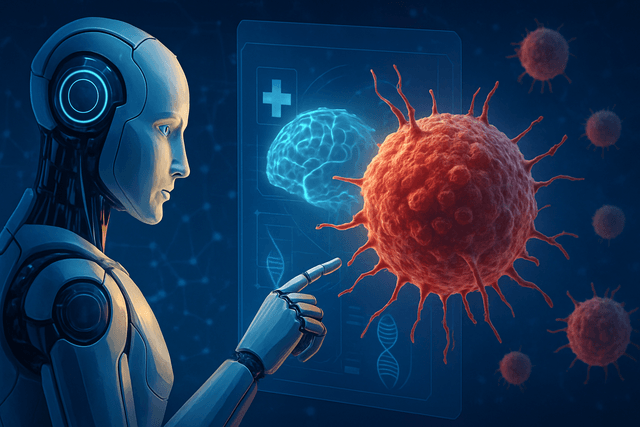Google's artificial intelligence is emerging as a powerful ally in the fight against cancer, with breakthroughs that could fundamentally change how the disease is detected, diagnosed, and treated.
In a deeply personal address at the American Society of Clinical Oncology's Annual Meeting in Chicago, Google's President and Chief Investment Officer Ruth Porat—herself a two-time breast cancer survivor—outlined how the company's AI research is showing remarkable promise in oncology. "The ultimate goal is to look beyond making cancer manageable to making it preventable and curable," Porat emphasized.
Google has pioneered deep learning models that can analyze gigapixel pathology slides to identify cancerous cells that might be missed by the human eye. These AI systems have demonstrated the ability to detect cancer in lymph nodes with greater accuracy and in half the time compared to traditional methods. For patients, this could mean earlier intervention when treatment is most effective.
The company's AI models are also proving valuable in breast cancer screening. Research has shown Google's mammography AI can reduce both false positives and false negatives compared to expert radiologists, potentially improving screening program accuracy while reducing patient stress and wait times.
Beyond detection, Google has partnered with ASCO to develop the ASCO Guidelines Assistant, an AI tool that instantly processes 80-90 page treatment guidelines to provide clinicians with clear, structured answers. This collaboration aims to democratize healthcare by giving oncologists everywhere access to the latest evidence-based recommendations.
The impact extends to clinical workflows as well. Google's "agentic AI" is helping medical professionals reclaim valuable time—doctors are seeing 30% improved efficiency in documentation, while nurses are freeing up 40% of their time for discharge reports, allowing more direct patient care.
"AI is a critical part of democratizing healthcare, so that everyone everywhere can have access to the best insights," noted Dr. Clifford Hudis, CEO of ASCO and Porat's former oncologist at Memorial Sloan Kettering.
As these technologies continue to develop, Google is emphasizing responsible implementation, particularly regarding data privacy and cybersecurity in healthcare environments. The company's vision is clear: harness AI's potential to transform cancer from a devastating diagnosis to a manageable—and eventually preventable—condition.

